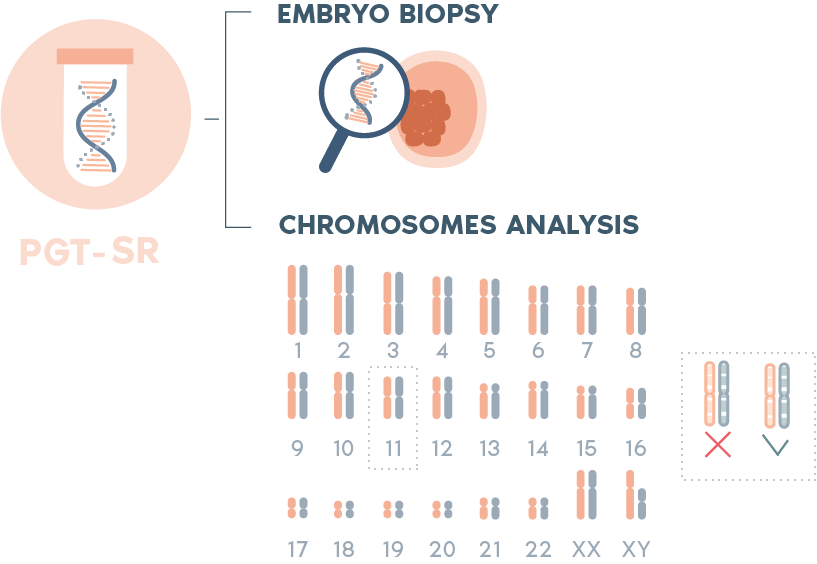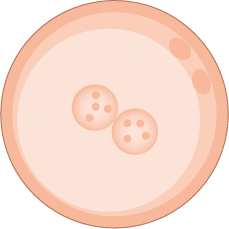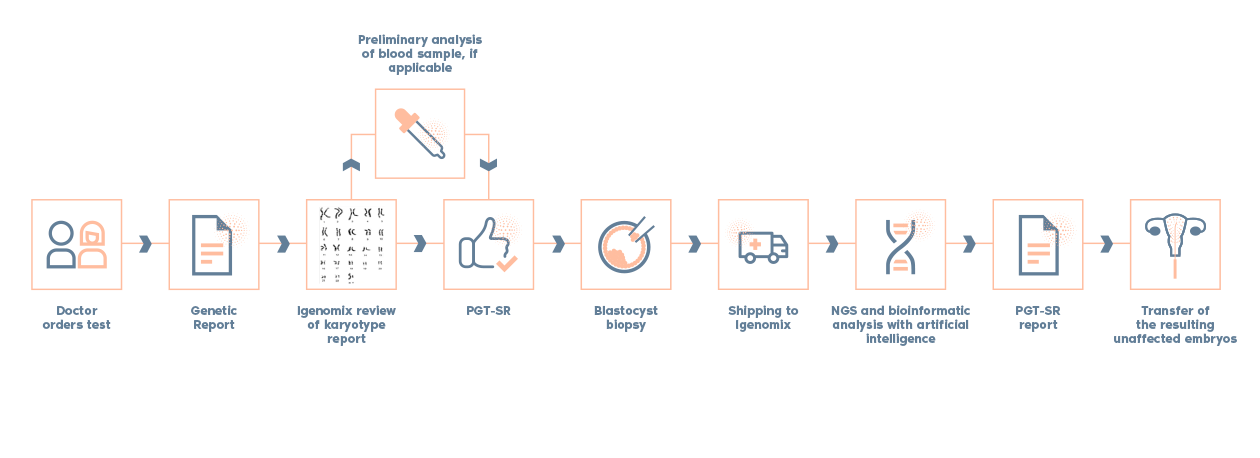Main benefits:
PGT-SR significantly reduces the likelihood of transferring an embryo with an unbalanced structural rearrangement, and therefore:
-
- Increases pregnancy rates per transfer:
Selecting chromosomally normal embryos can increase the rate of pregnancy after transfer.
- Reduces miscarriage rate:
The risk for chromosomal abnormalities in embryos is higher when one partner carries a balanced structural rearrangement. The risk for miscarriage is reduced if a euploid embryo is transferred.
- Increases the likelihood of having a healthy baby:
Depending on the size of the resulting imbalances and the chromosomes involved, the presence of an unbalanced structural rearrangement could result in a baby with varying degrees of intellectual disability/birth defects.
- Reduces the time and use of resources:
Increases the chances for successful transfer by selecting embryos with the highest reproductive potential, reducing the time and costs of extra transfer cycles.
Who should consider PGT-SR?
PGT-SR is indicated for any couple in which one member has been identified to carry a balanced structural rearrangement, such as a:
- Reciprocal translocation
- Inversion
- Robertsonian translocation
The presence of a structural rearrangement increases the risk of creating embryos with chromosomal imbalances.
PGT-SR may be indicated when other structural abnormalities, such as ring chromosomes, are identified in the patient. Evaluation of the karyotype by Igenomix is required.
PGT-SR Plus is our most advanced 4-in-1 genetic test that incorporates both NGS and SNP analysis to increase accuracy and confidence for embryo transfer. In addition to screening for imbalances detected by PGT-SR, PGT-SR Plus includes the following features:
Ploidy assessment:
PGT-SR Plus enables the detection of both haploidy and triploidy, ensuring the selection of embryos with the correct chromosome content.
In addition, PGT-SR Plus increases the number of viable euploid embryos available for transfer by detection true 2PN (diploid) embryos from 0PN, 1PN and 2.1/3PN embryos that may not otherwise be considered for transfer.
Cohort Check – Sibling QC:
Provides assurance that the tested embryos within a cohort are genetically related to each other.
Contamination:
Our testing process includes measures to detect both external cell DNA and maternal cell contamination increasing the accuracy and confidence of the testing process and significantly reducing the risk of misdiagnosis.
















